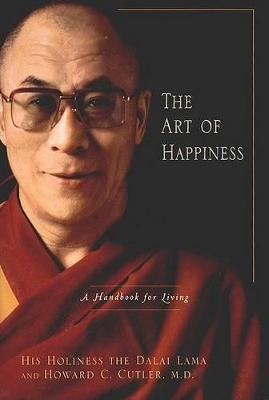Reviewed by brokentune on
I mistakenly thought this was a book by His Holiness the Dalai Lama, who is listed as one of the authors - or the only authors in some book databases - but it is not. This book was written by Howard C. Cutler, a psychiatrist, who spent one week with the Dalai Lama, and then used his interviews with the Dalai Lama as a basis for this book.
Now, once I found out that I was mislead by the book, I still wanted to read on and see what the author had to say. Unfortunately, I was quickly put off by two - in my opinion major - logical flaws in the construction of the book's premise:
1. The author provides the following motivation behind writing the book:
"When I initially conceived of this book, I envisioned a conventional self-help format in which the Dalai Lama would present clear and simple solutions to all life’s problems. I felt that, using my background in psychiatry, I could codify his views in a set of easy instructions on how to conduct one’s daily life. By the end of our series of meetings I had given up on that idea. I found that his approach encompassed a much broader and more complex paradigm, incorporating all the nuance, richness, and complexity that life has to offer."
You see, my problem is that the Dalai Lama's books, speeches and other communications are pretty easy to understand. He has a particular skill to explain complex issues in simple terms, but then simplicity is one of the essential elements in his way of life.
The other issue I had with the author's statement is that I find the approach of trying to create a dogma from a Buddhist point of view a rather ridiculous idea. If there ever was a spritual teaching whose essence is that it is wholly un-dogmatic and un-codified, it would be Buddhism, but then maybe I am just getting the wrong end of the stick.
2. The author's approach in this book is to try and combine Western science with the Dalai Lama's interpretations/teachings. Again, this is a flawed approach when early on in the book, the author includes the following quotation:
"In trying to determine the source of one’s problems, it seems that the Western approach differs in some respects from the Buddhist approach. Underlying all Western modes of analysis is a very strong rationalistic tendency – an assumption that everything can be accounted for. And on top of that, there are constraints created by certain premises that are taken for granted."
Basically, the Dalai Lama tried to explain that a Western approach which is mostly based on science is restricted in its understanding of the human condition. So, why the author tries to combine, or back up, the topics discussed from a Buddhist perspective in this book with references to Western scientific research (for which he often does not cite sources!!!) is totally beyond me.
Can't recommend this at all.
Reading updates
- Started reading
- 7 March, 2016: Finished reading
- 7 March, 2016: Reviewed
